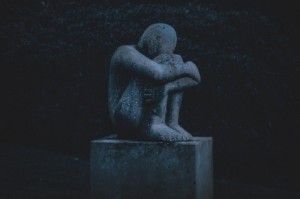Playlist #23: The Beautiful Ones
It was the scene that helped define and produce a generation of musicians, so why is Britpop such a dirty word?
When Ultrasound imploded in 1999, so too did Britpop’s last great hope. So bloated was their album Everything Picture, that when it finally arrived – after the early promise of singles like Stay Young and Floodlit World – its underwhelming nature was the final nail in the coffin of the band and the scene.
Flashforward to 2011 though, and Ultrasound have reformed (releasing new album Play for Today), making now as good a time as any to reassess the scene that spawned them. In the intervening years, Britpop, the movement that produced Suede, Elastica and Blur, is now a byword for a horrible, commercial and artificial period that culminated with the Gallagher’s hanging out at number 10.
Indeed, Elastica’s Justine Frischmann, in the vanguard and a major player had this to say to the Guardian’s John Harris in 2005: “I always feel kind of dirty after I’ve talked about Britpop. A bit tainted, somehow. Even at the time, it seemed vaguely nauseating.” How did that happen?
For a start, it was always far too easy – as is often the case – to lump everybody of that time into a box neatly marked Britpop. Art-rock produced by the likes of Elastica, et al was clearly at odds with the droning rock music simulacra of Oasis and their like. Of course, things ended up getting a bit messy – why should we suppose personalities meshed any better than musical styles?
In many cases, the personalities within the particular factions fared no better. The excess of the time meant Elastica descended into the kind of drugs hell which can, allegedly, lead to the sinking of a record label (Steve Lamacq’s Deceptive), while Blur’s Graham Coxon struggled for most of the era with alcoholism. Meanwhile, Frischmann formed the centre of an unhealthy – is there any other kind? – love triangle with Blur’s Damon Albarn and Suede’s Brett Anderson.
Alongside all the real life stuff that these bands were dealing with, the media was getting in on the act, sensing for the first time in a long time, a Beatles versus Stones scenario, drumming up the rivalry between Blur and Oasis. The less said about that the better probably, but their resulting high profile undoubtedly lead to the then, and now, immensely cringeworthy Cool Brittania days. When politics cottons on, you know it’s over, right?
But amidst all of the backstabbing, drugs (and related shenanigans), and inevitable fallout, Britpop – if we insist on calling it that – undoubtedly produced interesting bands challenging the previous pop hegemony in the UK, and the plaid clad grunge scene. Bands like Earl Brutus, Luke Haines’s The Auteurs (represented here by Blackbox Recorder, and author of caustically brilliant Britpop and My Part in its Downfall) and Pulp were showing a generation that there was more to TOTPs than Genesis, Bryan Adams and (extra shudder) Jimmy Nail.
For a scene we’re now so quick to disparage, introducing (often amazing) guitar music to the mainstream where previously we only had Stock, Aitken and Waterman, is some feat. Also, you only have to look at the bands immediately in the wake of the scene’s demise to realise, or admit, that actually, we were on to a good thing.
While the likes of Teenage Fanclub opened the door to bands as depressingly, tragically bland as Travis, The Stereophonics and Coldplay, it is the industry mindset rather than the bands themselves which is to blame; the clamour for the ‘the next big thing’ led to ugly distortions and wresting of control from the ‘indies’. This kind of practice led to a hundred bad guitar bands getting deals, and probably its nadir, Belle and Sebastian winning a Brit for best newcomers in 1999. The band had been around since 1996.
But for all of that, Britpop shook the aural landscape up at a time when it most needed it, providing an edge that had been sorely lacking, and allowed a million rock and pop journalists to believe – if only briefly – that their writing was relevant again, because the bands suddenly were, too. And without it, Jarvis Cocker would never have had the opportunity to diss Jacko in quite the same way.





